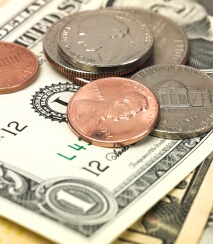The US dollar is rallying against its major counterparts at the end of the trading week following a better-than-expected August jobs report. The bullish economic report will likely give further ammunition to the Federal Reserve to raise interest rates at its next Federal Open Market Committee (FOMC) policy meeting later this month, a dollar-positive move.
According to the Bureau of Labor Statistics (BLS), non-farm payrolls surged 201,000 jobs last month, beating market forecasts of 191,000 jobs. The biggest employment gains were in education, construction, transportation, hospitality and leisure, and professional and business services. The unemployment rate held steady at 3.9%. Wages were also higher as hourly earnings advanced 2.9%, or $0.10, to $27.16 per hour, the fastest pace in more than nine years.
The only blemishes in the labor report were the declines in manufacturing and retail jobs and the downward revision in June and Julyâs employment gains â a combined 50,000.
In total, the US economy has created an average of 207,000 new jobs per month in 2018, a faster pace than in 2016 and 2017.
Trade will now be back in the focus for investors, especially after a new report suggested that President Donald Trump will target Japan. According to Wall Street Journal columnist James Freeman, Trump hinted that he might pick a fight with Tokyo, despite his excellent relationship with Prime Minister Shinzo Abe, because he is âstill very focus on eliminating trade deficits with Americaâs trading partners.â
Freeman writes:
[Trump] described his good relations with the Japanese leadership but then added: âOf course that will end as soon as I tell them how much they have to pay.’
When it comes to a new North American Free Trade Agreement (NAFTA) with Canada, it does not seem like anything will happen in the coming days. Both sides continue to state that they want what is best for their countries and that they are confident a good deal can be reached.
Foreign Affairs Minister Chrystia Freeland told reporters on Thursday after a 20-minute meeting in Washington with her negotiating counterparts:
We really are confident, as we have been from the outset, that a deal which is good for Canada, good for the United States and good for Mexico is possible.
Earlier this week, the Department of Commerce reported that the July trade deficit rose 9.5% to $50.1 billion, the fastest pace in roughly three years, up from $45.7 billion in June.
The US Dollar Index spiked 0.25% to 95.27, adding to its year-to-date gains of 3.4%.
The CAD/USD currency pair fell 0.05% to 0.7605, from an opening of 0.7609, at 15:30 GMT on Friday. The EUR/USD rose 0.39% to 1.1625, from an opening of 1.1580.
If you have any questions, comments or opinions regarding the US Dollar,
feel free to post them using the commentary form below.
